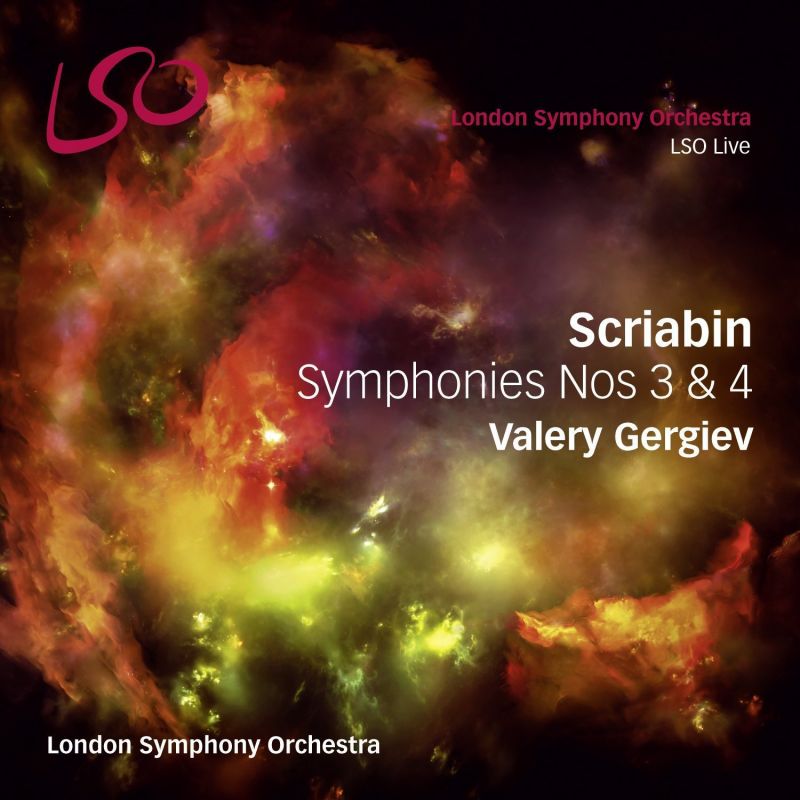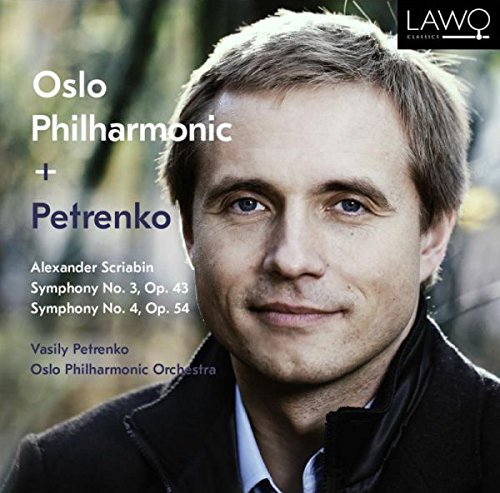SCRIABIN Symphonies Nos 3 & 4
View record and artist detailsRecord and Artist Details
Composer or Director: Alexander Scriabin
Genre:
Orchestral
Label: LSO Live
Magazine Review Date: 12q
Media Format: Super Audio CD
Media Runtime: 65
Mastering:
DDD
Catalogue Number: LSO0771

Tracks:
| Composition | Artist Credit |
|---|---|
| Symphony No. 3, 'Divine Poem' |
Alexander Scriabin, Composer
Alexander Scriabin, Composer London Symphony Orchestra Valery Gergiev, Conductor |
| Symphony No 4, The Poem of Ecstasy |
Alexander Scriabin, Composer
Alexander Scriabin, Composer London Symphony Orchestra Valery Gergiev, Conductor |
Composer or Director: Alexander Scriabin
Genre:
Orchestral
Label: Lawo
Magazine Review Date: 12/2015
Media Format: CD or Download
Media Runtime: 69
Mastering:
DDD
Catalogue Number: LWC1088

Tracks:
| Composition | Artist Credit |
|---|---|
| Symphony No. 3, 'Divine Poem' |
Alexander Scriabin, Composer
Alexander Scriabin, Composer Oslo Philharmonic Orchestra Vasily Petrenko, Conductor |
| Symphony No 4, The Poem of Ecstasy |
Alexander Scriabin, Composer
Alexander Scriabin, Composer Oslo Philharmonic Orchestra Vasily Petrenko, Conductor |
Author: Geoffrey Norris
Petrenko has the distinct edge here. Where Gergiev’s approach in The Divine Poem, while passionate and emotionally highly charged, can sound generalised, Petrenko is far more alert to the music’s shifting moods, pacings and dynamics, finding expressive potential in those evanescent, volatile gestures that make the substance of the symphony at once so rich and so restless. It’s not that you necessarily expect a conductor to fix precisely in musical terms what Scriabin meant by such markings as ‘avec trouble et effroi, de plus en plus audacieux’ or ‘orageux’, but they do tell you something about the music’s febrile nature, its startling spurts of energy, its ominous radiance, its fusion of momentum and, as Scriabin would say, ‘ravissement’. Petrenko can build up a pulsating climax in the finale along with the best of them, as indeed can Gergiev. It is simply that, throughout The Divine Poem, Petrenko, with his refined attention to texture and detail, makes the score sound so much more intriguing, so much more unusual.
In The Poem of Ecstasy Petrenko and Gergiev have Pletnev’s interpretation to compete with, a performance of truly ecstatic headiness. Nor can one ignore Svetlanov’s 1996 version (Warner, 5/07) or Muti’s Philadelphia recording of 1990 (EMI, 7/91 – nla), both of them part of complete Scriabin symphony series and, in their different ways, capturing the music’s spirit.
In the great scheme of things it’s a minor quibble, maybe, but the first chord in Gergiev’s performance is not quite unanimous. As an interpretation, however, it works well in its flexibility and in the mix of seductive languor, nervy animation and healthy solo trumpet aspiration. Again, though, Petrenko is the more impressive: his performance has all those qualities but there just seems to be a sharper focus and a keener ear for the intricacies of Scriabin’s world of sound.
Discover the world's largest classical music catalogue with Presto Music.

Gramophone Digital Club
- Digital Edition
- Digital Archive
- Reviews Database
- Full website access
From £8.75 / month
Subscribe
Gramophone Full Club
- Print Edition
- Digital Edition
- Digital Archive
- Reviews Database
- Full website access
From £11.00 / month
Subscribe
If you are a library, university or other organisation that would be interested in an institutional subscription to Gramophone please click here for further information.




